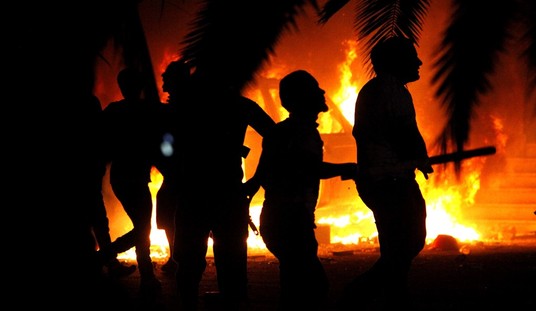When pressed on foreign policy during his campaign for reelection, President Obama continually talked up the death of Osama bin Laden, the winding down of the wars in Iraq and Afghanistan, and the substantially “diminished” threat of al Qaeda as his major credentials. During his second inaugural speech this afternoon, however, President Obama talked a lot about the challenges we as a nation still face in multiple policy arenas, but was conspicuously iffy on the threats we still face in terms of terrorism and extremism — as David Ignatius points out:
The area where the speech was spongiest was foreign policy. Obama reiterated his campaign theme that “a decade of war is now ending” and that maintaining peace does not require “perpetual war.” That certainly fits the mood of the war-weary nation that re-elected him. And there was a ritual assertion of internationalism, in the insistence that “America will remain the anchor of strong alliances in every corner of the globe.”
This is good rhetoric, but empty policy guidance. A listener wouldn’t have had a clue that a war is going on in Syria that has claimed over 60,000 lives, and that there is no discernible American policy to deal with it. A listener wouldn’t have known that a group called Al Qaeda still exists, let alone that it has left savage calling cards this past week in Algeria, just as it did in September in Libya.
“A decade of war is now ending”? That sounds to me dangerously close to declaring victory, but as the terrorist attack on Benghazi in September and the recent events in Mali demonstrate all too clearly, we have security threats that will continue long after we’ve left Afghanistan. Even if we want to stop being at war, that doesn’t mean that terrorists will stop waging it — and although President Obama mightn’t have wanted to draw attention to that particular fact today, his administration certainly knows it:
But events in Mali, Algeria and other countries are now spurring a reconsideration of the military role the U.S. should take on the continent, U.S. officials said.
The White House and African analysts have voiced fears that a more direct U.S. role could weaken local governments and further inflame Islamist extremism. U.S. officials have also questioned the direct national security threat posed by such Africa-based militants as AQIM, Somalia’s al-Shabaab militia and the Lord’s Resistance Army in central Africa.
Obama administration officials said this strategic view is being challenged by the rising terrorist activities in North Africa, including the abduction this week of Western hostages, including Americans, working at a natural-gas field in Algeria. Reports that the militants are demanding the release of two Islamic extremists from American prisons have emphasized their conflict with the U.S.
Now is clearly not the time for complacency.








Join the conversation as a VIP Member